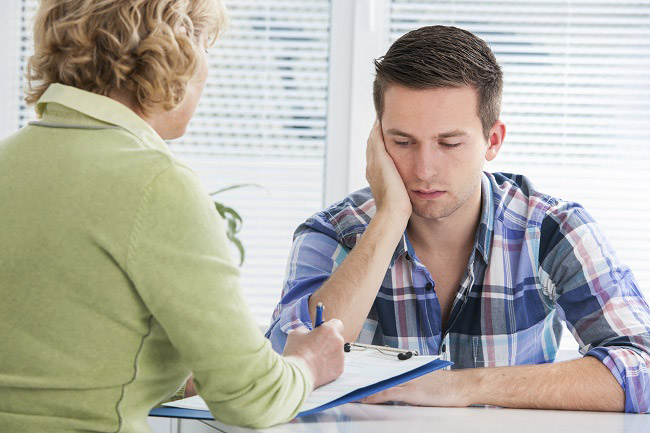What Happens During Drug Detox?
Many addicts and alcoholics believe they can quit using substances on their own. But after a few painful and confidence-crushing failed attempts, the need for an inpatient drug detox at a residential drug rehab often grows clearer.
Taking that first step to rid your life of drugs and alcohol requires a giant leap of faith. The life that you’ve come to know is about to change dramatically. And while some of those changes require patience and a bit of uneasiness, ask any recovering addict and they will tell you the rewards are well worth it.
Knowing what to expect during drug detox can help assuage unsettled nerves and reinforce your commitment to treatment. So what exactly happens during drug detox?
Intake Consultation and Assessment Before Detox
 On the first day of drug rehabilitation, you will be welcomed to the start of your recovery. An experienced counselor will talk with you about your history, substance use and any medical issues. Based on this information, your therapist will work with you to create a treatment plan that matches your unique needs. Upon arrival, you will also have time to get comfortable in your room and take a tour of the facility, if desired.
On the first day of drug rehabilitation, you will be welcomed to the start of your recovery. An experienced counselor will talk with you about your history, substance use and any medical issues. Based on this information, your therapist will work with you to create a treatment plan that matches your unique needs. Upon arrival, you will also have time to get comfortable in your room and take a tour of the facility, if desired.
Being in an unfamiliar place with a group of people you’ve never met can be intimidating. You may feel anxious, angry and nervous, and you may begin to rationalize all the reasons you don’t really need detox.
During this volatile time, your drug rehab program will guide you through the process and support you every step of the way. If at any time you feel like leaving drug rehab, rest assured that those feelings are normal and that they will pass with each day you spend getting well.
Medical Evaluation Before Detoxification Begins
By the time you enter drug detox, months or years of drug abuse have taken a toll on your body. To address any medical issues, nutrition deficiencies and health concerns, a medical team will conduct a comprehensive evaluation.
As part of the evaluation, the medical staff, which may include nurses, a nurse practitioner and/or physician will talk with you about the most effective ways to treat your withdrawal symptoms and drug cravings. Drug testing and mental health evaluations are often necessary to adequately address withdrawal symptoms and other health concerns.
Medically Supervised Detox
Depending on the type of addiction and length of drug use, your treatment team may recommend medically supervised detox. A supervised medical detox is critical for individuals addicted to alcohol or benzodiazepines (which can be life-threatening), and is well-advised for many undergoing opiate detox.
Under the close supervision of a licensed physician, you may receive medications such as methadone, Suboxone and buprenorphine to minimize drug cravings and withdrawal symptoms. These medications are backed by many years of scientific research and can be used solely for short-term detox (roughly 3-10 days) or for longer periods of time. The medical team may also recommend nutritional supplements, fluids to treat dehydration, pain relievers and non-addictive medication to address body aches and other complaints.
Many inpatient drug rehabilitation centers will limit your contact with family and friends during drug detox. This “blackout period” allows you to focus on treatment and allows your loved ones to take proper care of themselves while you are away.
Your Participation in Drug Detox Treatment
While medication can greatly reduce withdrawal symptoms during detox, you probably won’t feel 100% during this part of the recovery process. Even though detox typically only takes a few days, push yourself during this time to take advantage of all the drug rehab program has to offer.
Although you may be housed in a separate detox area, your treatment team will recommend that you participate as much as possible in counseling, activities and other services offered at the drug rehabilitation center. Getting involved will remind you why you’re going through detox in the first place, and will help combat the tendency toward isolation that is characteristic of addiction.
Recovery Begins After Detox
At the end of drug detox, you will look, think and feel better than you have since you started using drugs. But this doesn’t mean you’ve overcome addiction. Detox prepares you to participate in a drug rehab program that includes 12-Step meetings, therapy, life skills training, stress management, family counseling, relapse prevention planning and recovery-related activities. There are many different types of rehabs, so be sure to look for one that meets your specific needs, whether that be a Christian drug rehab or an executive drug rehab.
If you’re feeling excited but scared, empowered yet powerless, welcome to recovery! This journey is hard, long and worth every minute.



